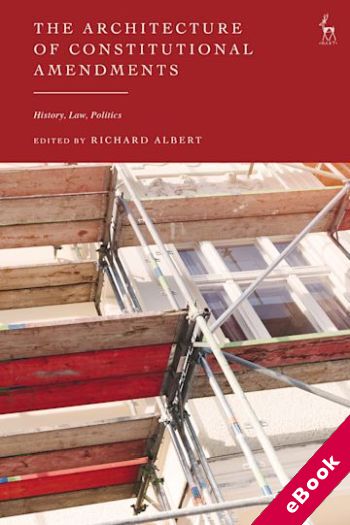
The device(s) you use to access the eBook content must be authorized with an Adobe ID before you download the product otherwise it will fail to register correctly.
For further information see https://www.wildy.com/ebook-formats
Once the order is confirmed an automated e-mail will be sent to you to allow you to download the eBook.
All eBooks are supplied firm sale and cannot be returned. If you believe there is a fault with your eBook then contact us on ebooks@wildy.com and we will help in resolving the issue. This does not affect your statutory rights.
This book blends deep engagement with constitutional theory and close attention to real-life political practice to explore how the choices political actors make in codifying constitutional amendments exert consequences on the operation of the constitution in relation to democracy, the rule of law, and the separation of powers.
It answers the following questions:
The book examines the 3 major models of amendment codification-the appendative, the integrative, and the invisible models-and also shows how some jurisdictions have innovated alternative forms of amendment codification that combine elements of more than 1 model in a unique hybridisation driven by history, law, and politics.
Constitutional designers rarely consider this question of central significance to the operation of constitutions: where in the constitution to codify amendments once they are ratified? This innovative book is the first to explain why the placement of constitutional amendments concerns more than mere aesthetics. It involves how and whether a people remembers its past, how the constitutional text will be interpreted and by whom, and whether the constitution will be easily accessible to the governed.
A global tour of the high stakes of constitutional design in every region of the world, this book features 18 contributors across Africa, America, Asia and Oceania, and Europe raising new questions, opening our eyes to new streams of research, and uncovering new possibilities for constitutional design.